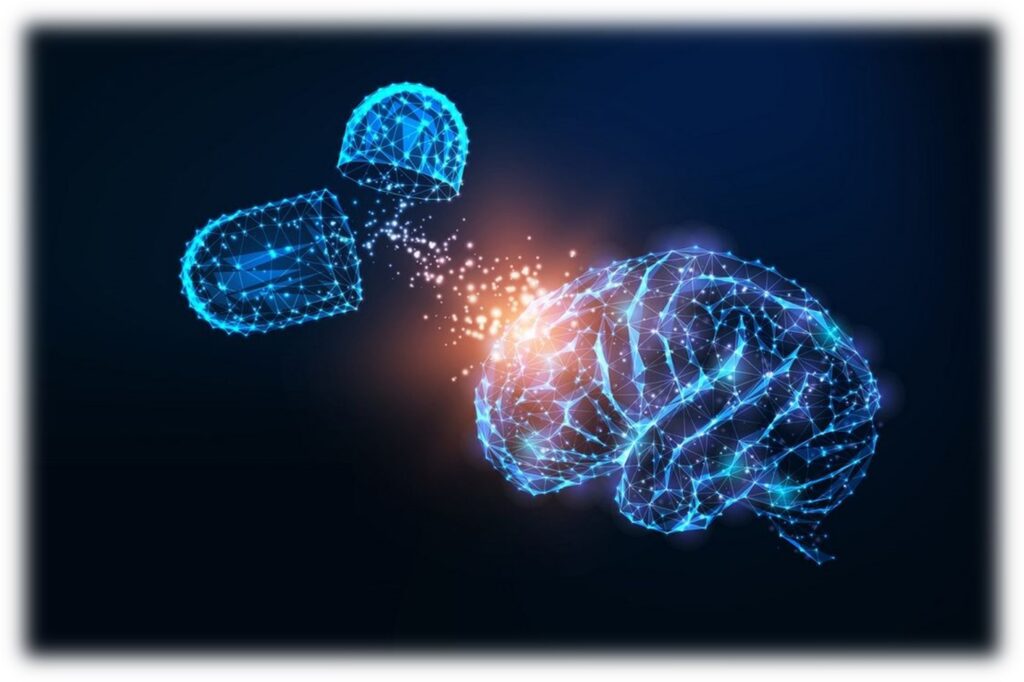Ketamine to Treat Addiction

Understanding Ketamine’s Role in Treating Addiction
Addiction is a complex and multifaceted disorder that affects millions of people worldwide. Traditional treatments, including behavioral therapies and medication, have been the cornerstone in the management of addiction. However, recent studies and clinical trials have suggested that ketamine might represent a promising new treatment option. This article lays out the science and potential of Ketamine to Treat addiction, in the context of substance abuse.
What is Ketamine?
Ketamine, initially developed as an anesthetic in the 1960s, has recently gained attention for its potential in treating various psychiatric disorders, including depression, PTSD, and addiction. Its rapid action and unique mechanism of effect differentiate it from traditional antidepressants and addiction treatments. It is very important to understand that ketamine should not be thought of as a cure for any condition. When used appropriately it is an excellent treatment option that should be combined with other treatments to achieve the best results. A holistic approach that considers physical, mental and spiritual factors is more likely to lead to long lasting sobriety.
The Science Behind Ketamine
At the molecular level, ketamine is an NMDA receptor antagonist. It works by blocking these receptors in the brain, which play a crucial role in mood regulation and neuroplasticity. This action leads to the release of neurotransmitters like glutamate, triggering a cascade of changes in the brain that enhance neuroplasticity – the brain’s ability to adapt and reorganize itself.
Ketamine’s Rapid Effects
One of the most remarkable aspects of ketamine is its ability to produce rapid antidepressant effects, often within hours of administration. This is a significant departure from traditional antidepressants that may take weeks to show results. This rapid action is particularly beneficial in addiction treatment, where urgent intervention can be crucial. Transitioning from consuming mind-altering substances addictively to sobriety is extremely difficult for most. Ketamine can provide a rapid acting decrease in cravings that improves the chances of successfully navigating this difficult time.
Ketamine to Treat Addiction
Breaking the Cycle
Addiction is often driven by a cycle of cravings and negative emotional states. Traditional treatments focus on breaking this cycle through behavioral therapies and medications that target specific neurotransmitter systems. Ketamine, however, offers a different approach. By enhancing neuroplasticity, ketamine may help “rewire” the brain, aiding in breaking the deeply ingrained patterns of addiction.
It is also important to note that many individuals that are struggling with addiction also have other co-existing mood disorders such as depression, anxiety and PTSD. In some cases, the habit of self-medicating is a direct result of trying to find relief from these other conditions. In others, the suffering that generally accompanies substance abuse was the precursor for these other significant issues. This makes ketamine an even more attractive treatment option due to its potential to provide benefits for a range of mood disorders. In essence, it may be possible to kill two birds with one stone. Ultimately, each person will have a slightly different path in recovery and every treatment option and form of support should be considered.
Clinical Evidence
Clinical trials have shown promising results in using ketamine to treat various forms of addiction, including alcohol, opioids, and cocaine dependency. A study published in the American Journal of Psychiatry demonstrated that a single dose of ketamine significantly reduced alcohol cravings and promoted abstinence in alcohol-dependent individuals. Similarly, research in opioid addiction suggests that ketamine may reduce withdrawal symptoms and cravings, providing a path to recovery from addiction.
A Holistic Approach
It’s important to note that ketamine is not a standalone cure for addiction. The most effective treatment plans combine ketamine with other modalities like cognitive-behavioral therapy, counseling, and lifestyle changes. This holistic approach ensures that the underlying causes of addiction are addressed, promoting long-term recovery. Clients that are treated at NW Ketamine Infusion are strongly encouraged to explore 12-step programs. These programs are widely available and singularly designed to provide a foundation for long-term sobriety. Ketamine should be viewed as providing a bridge to navigate the most crucial time of early sobriety and not as a long-term solution to addiction.
Long-term Use and Research
The long-term effects of ketamine use are still under research. While initial studies are promising, more extensive clinical trials are needed to understand the full implications and potential risks of ketamine treatment for addiction.
The Future of Ketamine to Treat Addiction
The exploration of ketamine as a treatment for addiction represents a significant shift in addiction therapy. Its potential to rapidly alleviate symptoms and promote brain plasticity opens new avenues for treatment-resistant cases. However, it is not a silver bullet. The future of ketamine in addiction therapy lies in its integration into comprehensive treatment programs. It can be tailored to individual needs, and is supported by ongoing research and clinical trials.
Conclusion
Ketamine’s emergence as a potential treatment for addiction marks an exciting development in the field of addiction medicine. Its unique mechanism of action and rapid effects offer hope for those struggling with addiction. More specifically, it is good for those who have not responded to traditional treatments. As research continues, it is essential to approach ketamine treatment with caution. It is a best practice to integrate it into a broader treatment strategy that addresses the multifaceted nature of addiction.
The journey towards recovery from addiction is deeply personal and often challenging. Innovations like ketamine therapy may represent an exciting new pathway to recovery. As we advance in our understanding and application of this treatment, it’s essential to remain grounded in comprehensive care. Ongoing support is fundamental to overcoming addiction.
NW Ketamine Infusion
March 1, 2024
Disclaimer: This blog does not constitute medical advice but rather a synthesis of published reports and accumulation of personal experience in treating patients using ketamine. The information in this post should not be used to guide medical decisions.

